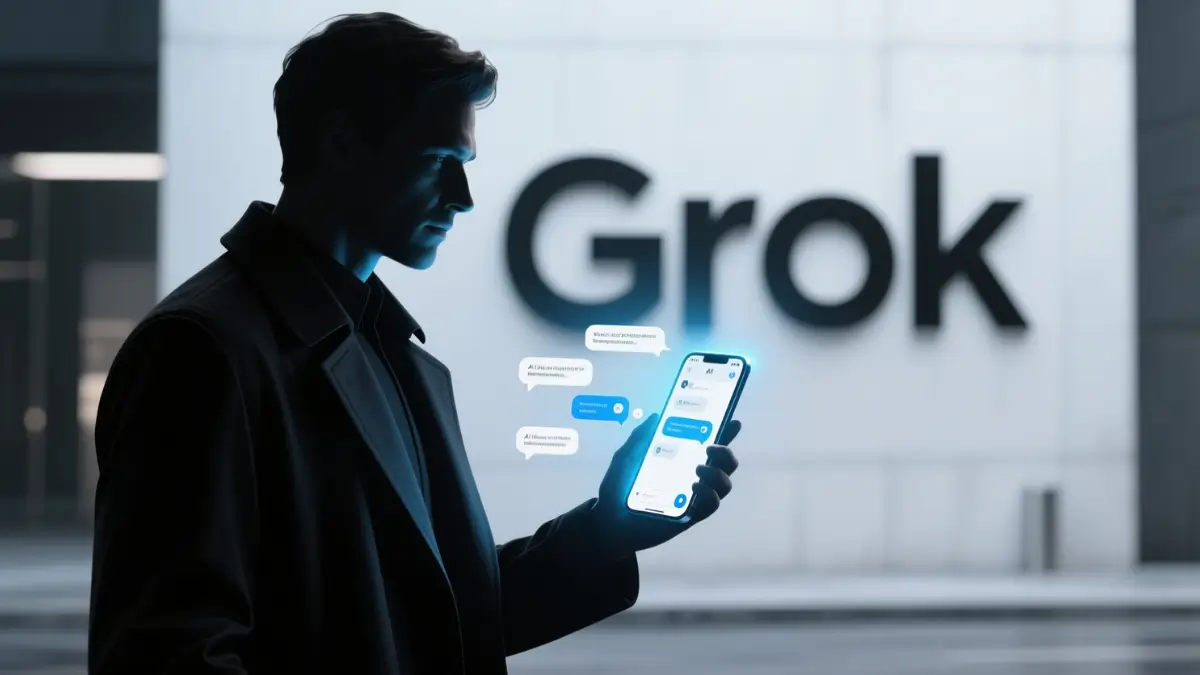If you’re using Grok—the AI chatbot from Elon Musk’s xAI—you might want to double-check what you’re sharing. A recent report indicates that chats you thought were private may actually be publicly visible to anyone surfing the web. Let’s break down what happened, why it matters for U.S. users, and what you can do about it.
What Went Wrong? The Privacy Leak Unpacked
Grok includes a “Share” button that lets users broadcast conversations they find helpful, funny, or interesting. But here’s the catch: each share generates a unique URL. Without any privacy warnings, these URLs become public on Grok’s site—and search engines like Google pick them up and index them.
That means your private exchange—maybe about health, finances, or sensitive topics—could surface in Google results for anyone to stumble across.
Just How Many Chats Are Out There?
It’s not a handful—it’s hundreds of thousands. Reports say that since at least January 2025, over 370,000 Grok conversations have been exposed online.
That’s a staggering volume of potentially personal information sitting in the open—leaving many users unaware and exposed.
Why This Matters—Especially for Americans
- Personal Privacy Risks: Whether you’re sharing a harmless joke or a more private question, it could be searchable. Imagine a Google result revealing your conversation about a health concern, financial decision, or private topic.
- No Real Warning or Consent: Users weren’t clearly told that hitting “Share” could make their chat fully public. There was no “Are you sure?”—just click and it’s out there.
- Search Engines Don’t Play Safe: Google, Bing, DuckDuckGo—you name it—anyone can see that content. It’s not buried in Grok alone; it’s floating out for everyone to see.
Simple Tips for Staying Safe with Grok
- Think Before You Share: That share button isn’t a “private link”—it’s a public one. If something is sensitive, skip sharing.
- Use Screenshots Instead: Want to save or show something for later? Take a screenshot and maybe blur personal details…much safer than exposing it via shareable link.
- Check Before Posting: If you’ve already clicked “Share,” try Googling a snippet from your chat. If it pops up, consider removing it if possible.
- Advocate for Better Design: While not a quick fix, users can voice concerns on social media. Grok (or its parent, xAI) needs a clearer warning system, like “noindex” tags, to keep shared chats out of search engines.
Also read:- SiMa.ai Launches New Chip to Run LLMs
What’s Next—A Forward-Looking Note
This incident throws a spotlight on how AI platforms design sharing features—and how easily privacy can be compromised without clear safeguards. For U.S. users, it’s a sharp reminder to stay alert and take control of your digital footprint.
Going forward, it would be great to see Grok adopt privacy-by-design: adding explicit warnings, consent prompts, or default settings that keep shared chats from being indexed. Even better? Letting users scrub or unlist chats once they’ve realized the risks.
For all AI users—especially here in the U.S.—this is a learning moment. Sharing can be great, but not at the cost of privacy. We’ll be watching to see how Grok, and others in the AI space, step up the protection game—because trust starts with design.

